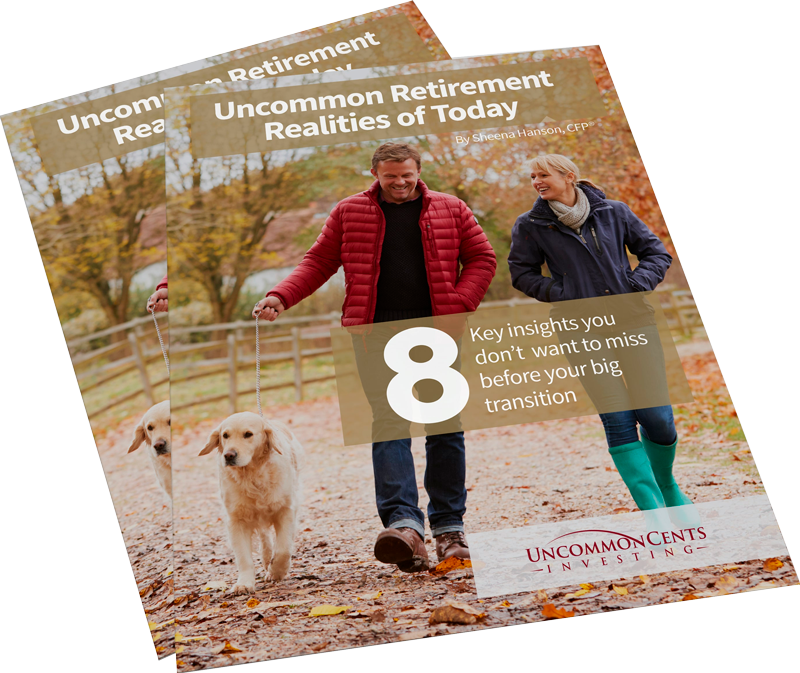Retirement isn’t the end of the road—it’s a shift in pace, a new rhythm, and often a long-awaited chance to reshape your days around what matters most. With more freedom in your schedule and fewer outside demands, you finally have the space to prioritize the parts of life that bring you joy, peace, and connection. Whether that means quiet mornings, creative projects, or more time with loved ones, this stage of life opens the door to living on your own terms.
What will bring color, structure, and meaning to your next chapter?
Retirement offers the gift of unstructured time, but it also brings a blank slate that can initially feel uncertain. Letting go of old routines and redefining your flow takes reflection and intention. With a thoughtful approach, you can shape your days in a way that supports your lifestyle, health, relationships, and peace of mind.
Tip #1) Start with a Clear Vision for Retirement Life
Thinking beyond money matters helps shape a truly happy retirement. Defining your unique priorities—like extra time with grandchildren, a dream volunteer role, or uninterrupted mornings for creative work—lays the groundwork for a daily structure that feels purposeful and relaxed.
Have you sat down and mapped out how a typical week might unfold?
Imagining your ideal rhythm—weekday routines, weekend plans, solo time, social time—can shape how you spend your days and what kind of spending those days require.
If you love gardening, for instance, you might set aside time and money for tools, supplies, or landscaping help. If art calls your name, enrolling in specific classes or maintaining a home studio might be worth budgeting for in advance.
Having a clear vision for your retirement lifestyle isn’t just emotionally grounding—it gives your financial plan a target. It becomes easier to make decisions around savings withdrawals, investment allocations, and timing of benefits when you know exactly what kind of life you’re building toward. When your day-to-day goals are defined, your financial strategy can do more than preserve wealth—it can actively support the life you want to live.
Tip #2) Stay Physically Active in a Way You Actually Enjoy
Taking care of your body in retirement can keep you feeling energized, independent, and ready for new adventures. You don’t need to train for a marathon if that’s not your style, but finding activities you actually look forward to is key to staying committed:
Walking or Hiking: Walking is one of the easiest ways to stay physically active. It’s low-impact, making it easy on your joints while also helping regulate blood pressure, blood sugar, chronic pain, and mental health. A quick walk through your neighborhood or along a nearby trail can give you fresh air and a cardiovascular boost.
Group Classes: Dancing, yoga, or tai chi blend movement with social time. It’s a great opportunity to expand friendships while building flexibility and balance.
Hobby-Focused Fitness: Gardening, golf, or swimming can do more for your body than you might think. Each of these pastimes can strengthen muscles and improve coordination, all while feeling less like a chore and more like fun.
Health Benefits: Regular movement brings wide-ranging perks, from helping with weight control to building strength. It also delivers health benefits related to endurance and joint support.
Tip #3) Revisit and Rework Your Budget for This New Phase
Spending can shift dramatically once you stop working full-time. You could spend less on commuting or business attire and more on hobbies and passions. Examining where your money flows allows you to create a plan that keeps you comfortable without feeling restricted.
What’s different now that you’re retired?
Daily schedules and income sources often change, making it important to look at fixed expenses (housing, insurance) and discretionary expenses (entertainment, gifts). Assess how you want to balance day-to-day costs with future goals, such as bigger trips or a new vehicle.
Remember, budgets aren’t set in stone…
It’s smart to check in on your budget every few months or after a significant life event so you can adapt as needed or see if you have started drifting in a new direction. Whether cutting back on minor expenses or allowing more room for special treats, clarity about your changing needs helps you stay in control.
Tip #4) Cultivate Social Connections and Strengthen Your Network
Expanding and nurturing social connections is an essential ingredient for a fulfilling retirement. You don’t have to fill every waking moment with group activities, but having a few go-to ways to connect can add warmth and structure to your days. The following may be great places to start:
Community Involvement: Joining a club, hobby group, or local senior center can put you in social networks with people who share your interests. These gatherings often offer group outings, classes, and social events that keep you engaged.
Scheduled Friend Time: A weekly lunch or a simple phone call can go a long way. When you pencil it in your calendar, you may be more likely to follow through, which helps maintain those meaningful bonds.
Faith-Based Communities: If spirituality is part of your life, religious groups offer regular social outlets, support systems, and fellowship that can be comforting and uplifting.
Tip #5) Give Back Through Volunteering or Mentoring
Retirement offers more freedom in how you spend your days—and sometimes, the most rewarding moments come from helping others. Whether you’re mentoring someone one-on-one or contributing to a local cause, there are plenty of ways to give back with purpose:
Volunteer Opportunities: Libraries, animal shelters, religious institutions, and hospitals often welcome retirees who can pitch in. If you love animals, a local rescue might need help walking dogs or cleaning enclosures. The opportunities are endless.
Mentorship Roles: Perhaps you have specialized knowledge from your career—why not share that experience? Programs at schools or community centers often seek individuals to guide younger folks on life skills, career paths, or specific academic subjects.
Routine and Purpose: When you volunteer regularly, your week gains a steady rhythm and a sense of direction. That might involve weekly shifts at a food bank or monthly visits to a youth mentorship group. That structure often feels satisfying in a stage of life that can otherwise be wide open.
Community Impact: You might be surprised how much your presence and expertise can help someone else. Knowing you’ve made a positive difference can fuel your own sense of well-being while leaving a lasting effect on the people you serve.
Tip #6) Travel Strategically—Whether It’s a Road Trip or a Bucket List Journey
Travel can be one of the great joys of retirement—but without a plan, it can also become one of the most significant expenses. A little foresight can stretch your travel dollars and make each trip more meaningful:
Senior Discounts and Rewards: Look into travel points, hotel memberships, or age-based discounts. These perks might seem small, but they can stack up throughout retirement and allow you to enjoy more trips than you initially thought possible.
Bucket List Planning: If you’ve been dreaming of visiting a far-off place, consider setting aside funds specifically for that goal. Knowing you have a budget for your once-in-a-lifetime destination can make it feel more attainable.
Health and Accessibility: If mobility is a concern, plan for shorter sightseeing days or accessible accommodations. Build in extra rest time to fully enjoy your adventures without feeling rushed.
Savvy Timing: Retirees often have the freedom to go during off-peak seasons or weekdays, which can be less crowded and more budget-friendly. Flexibility in your schedule can unlock unique opportunities you might have missed when you were tied to a standard vacation window.
Tip #7) Watch Out for Emotional Pitfalls Like Depression and Anxiety
The shift from a structured work routine to wide-open days can feel freeing at first—but for some, it brings an unexpected emotional toll. If much of your identity or daily purpose was tied to your career, retirement can stir feelings of disconnection or restlessness that, over time, may lead to depression and anxiety.
A little structure and social connection often go a long way in keeping your emotional well-being steady. And if professional support feels like the right step, it’s more than okay to prioritize it in your retirement budget
Tip #8) Explore Hobbies and Consider Part-Time Work
Retirement gives you back your time—and one of the most satisfying ways to spend it is by diving into hobbies you love or have always wanted to try. Whether it’s painting, fishing, baking, or fixing up old furniture, carving out space for creativity or hands-on projects can give your days shape and meaning.
What’s something you loved doing but haven’t had time for—until now?
You don’t have to be an expert to get started. Taking a class, joining a local group, or simply dedicating a quiet corner at home to your chosen hobby can bring a steady sense of progress and fulfillment. These pursuits aren’t just enjoyable—they can also be great for your mental health and can foster new relationships along the way.
Ever thought about turning something you enjoy into a side gig?
For many people, retirement isn’t about leaving work behind—it’s about approaching it on their own terms. You might explore part-time work in a new field, take on a seasonal role, or start a passion-driven side business. These flexible options can add fulfillment while keeping your schedule your own.
Could earning a little extra help you fund something fun—or simply feel more at ease?
The added income from light work can help cover those hobby expenses, offset travel costs, or act as a cushion for unexpected bills. Just as important, it can help you preserve your savings longer—giving you more peace of mind as you enjoy this next chapter.
Tip #9) Embrace Simplicity and Declutter
Retirement can be a perfect time to reset your environment—physically, mentally, and even digitally. Streamlining your space and routines can reduce distractions and make daily life feel lighter and more manageable:
Downsizing Your Space: Downsizing to a smaller home can reduce costs like utilities, property taxes, and upkeep. If you no longer need multiple rooms, consider whether a cozier space suits your new lifestyle. Selling a larger house might even free up funds you could direct toward travel or new hobbies.
Clearing Physical Clutter: If your closets overflow with items you haven’t used in years, now could be the moment to sort, donate, and discard. You may even want to consider a garage sale or selling things on places like Facebook marketplace to make some extra cash.
Digital Cleanups: We often forget how many online accounts, photos, or documents pile up over time. Organizing your digital files and updating passwords can help you stay on top of your virtual life. It also makes it easier for someone else to assist if you ever need a hand with tech tasks.
We Can Help You Enjoy Life After Retirement
Your post-work years can be filled with freedom, personal growth, and exciting possibilities. As you explore the roads ahead, remember that each financial choice—like where to invest or how to handle healthcare costs—plays a part in shaping your daily reality.
Want help protecting the golden years of your life?
Our team offers guidance to connect your goals, finances, and lifestyle in ways that feel true to you. Whether you’re refining your investments, reevaluating your budget, or simply seeking fresh inspiration, we can support you with tailored strategies and consistent check-ins.
Sheena is a highly regarded financial professional known for her clear explanations and practical advice on complex financial matters. She earned her CERTIFIED FINANCIAL PLANNER™️ designation in 2010 and holds a Bachelor of Science degree in Finance from the University of Wisconsin LaCrosse.



